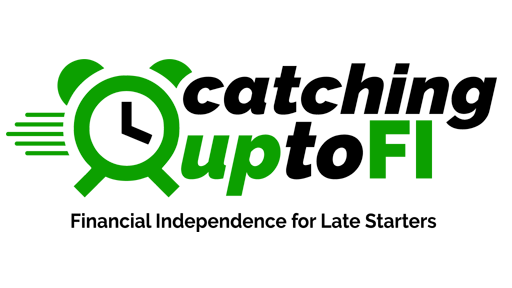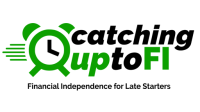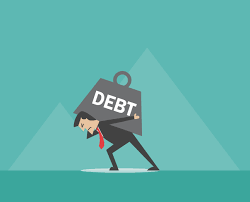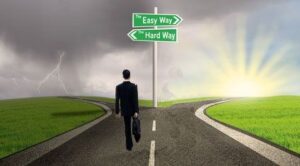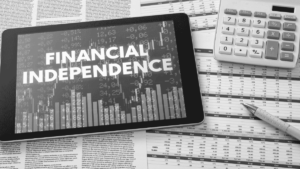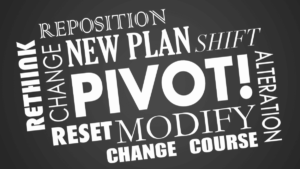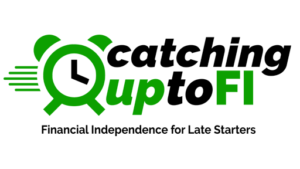At A Glance – Debt is NOT your friend. It robs your future, and more stuff won’t make you happier. Pay off your Debt as quickly as possible. It won’t be easy, but it will be worth it! Then you can start to design the future you’ve always dreamed of.
Accumulating debt has become an American past-time. Everything we want comes with “easy payments”, so why not buy it? Often-times we don’t realize how deep we’re in until we realize we can’t get out.
How many of us find ourselves thinking things like:
- I don’t want to buy some else’s car problems, so I need to buy a new car.
- My new baby needs the best and safest equipment, so I’ll just put her cute new stuff on my credit card.
- My boss was really unreasonable today, so I’ll go to that new bar for a happy hour with my friends.
- I need all this stuff to keep up. I wouldn’t want my friends to think I’m not doing well.
It feels normal because it’s what everyone else is doing. We have become professionals at retail therapy.
We’ve created a lifestyle that’s impossible to maintain. And we fund it all with debt. Take my word for it – this will NOT bring us joy. It only brings us bondage. Debt is a mental, emotional and financial drain that robs your future.
Debt Is A Product
Did you know debt is a product? Just like your favorite candy bar or the shampoo you use, debt is a product we buy. And just like the other products, it is heavily marketed to us.
Debt is sold to us in the form of credit cards, car loans and mortgages.
You Can’t Borrow Your Way Out
The only way to get out of debt is to quit borrowing. Taking out one loan to pay off another is just moving the debt around.
If you are serious about wanting to get out of debt, you have to stop taking on new debt. You can’t get out of the hole by digging it deeper.
What Does The Bible Say About Debt
The Bible has a lot to say about money. That is one of the things I explore here at Started At 50. If you study God’s word, it doesn’t take long to see that debt is not part of His plan for us. He knows it’s not good for us. Here’s a couple of examples.
Proverbs 22:7 – The rich rule over the poor, and the borrower is slave to the lender.
Romans 13:8(a) – Let no debt remain outstanding, except the continuing debt to love one another.
What Is Debt?
What is considered debt? The definition of debt is simple…Debt is anything you owe to anyone. Having debt means you are funding today’s life with tomorrow’s dollars. When does it end?!!!
It can end here and now. You CAN get out from under the stress and the bondage of debt. It won’t be easy, but it is possible. You can do it with a few simple tools and a plan.
Let’s talk a bit about the different kinds of debt and the effect debt can have on your life and then we’ll dive into the nuts and bolts of Debt Payoff.
Kinds Of Debt
- Credit Cards
- Student Loans
- Car Loans
- Mortgage
- Personal Loans
- Medical Debt
- Payday Loans
- HELOC
- 401k loans
- Loans from Your Parents
- “90 Days Same As Cash” Purchases
- Financing Your Kids Braces
Did you see anything on this list you had not previously considered debt? Many of these types of debt are common in our culture. It’s normal to have a Car Loan or Student Loans. Other types of debt such as Payday Loans are truly insidious, but they are all damaging to our financial well-being.
How Can Debt Affect You Emotionally?
- Frustration – It can be frustrating to have an unexpected expense that has to go on the credit card. Just when you thought you were making headway! Frustration can lead to giving up.
- Denial – Do you shove unopened bills in the drawer? You just don’t want to know how bad it is! Denial could lead to unhealthy coping habits like drinking in an effort to forget.
- Stress – Do you have more month than money? How can you juggle all these bills. Even with making minimum payments, you don’t have enough to go around! Stress could lead to weight gain or relationship problems.
- Fear and Panic – Do you let all your calls go to voicemail because you’re afraid it’s a collector. Are you fearful your credit card will be denied while you are at a restaurant with your date? Fear and Panic could lead to feeling anxious all the time and not enjoying life.
- Shame – Do you hide your spending or the amount of debt you have from friends, family or co-workers. You don’t want anyone to know how deep in debt you are. I mean, what would they think! Shame can lead to living an inauthentic life.
- Anger – Are you having money fights with your spouse? Are you yelling at your kids or your co-workers because you can’t quit thinking about your money problems? Anger can lead to relationship issues.
- Depression – You have just shut down. You can’t see a way out and your spouse doesn’t understand the pressure you’re under! You can’t deal with it anymore. Depression can lead to a whole list of mental, emotional or spiritual issues. Deardebt.com is a one of many resources for someone who is struggling with depression and mental health problems due to financial strain.
I experienced a lot of these emotions when Stephen and I were having our money issues. We had dug such a deep hole, I didn’t think we would EVER climb out. We couldn’t talk about money without getting into an argument. I was frightened and he had shut down. We were going nowhere.
The stress was unbearable and I became hopeless. This is no way to live.
You’ve Got This!
I want you to know that no matter where you are starting, YOU CAN DO IT! Your self-worth is not your net worth. Your past mistakes do not define your future. Forgive yourself and let go of the past! If you are starting your Debt reduction journey, let us know in my FB group, Started At 50. We are all there to support and encourage each other. We will not judge!
Getting back to Zero is a great feeling. You will be starting your Financial Freedom clock. This is where I was at 50 years old!
First Things First – Your Emergency Fund
Before you start to pay down your debt, you need to build a baby Emergency Fund. If you already have one, great! If not, you need an EF of $1000 in the bank. Why would I ask you to save $1000 when I’ve just spent pages telling you to pay off your debt? Because you need a safety net. Some cushion between you and life. As soon as you commit to paying off your debt, your car will break down or your refrigerator will go out. You don’t need to go deeper in debt while you are trying to pay it off.
This was one of the big problems I experienced in our dark days. We had no safety net and when life threw us a curveball, it sent us over the cliff financially.
Try to save your $1000 quickly. Have a garage sale, sell stuff on Marketplace, work some overtime or declare a “No Spend Month”. Find any way you can to get this first $1000. Then when you have a flat tire, it’s not a disaster!
How To Pay Off Your Debt
There are 3 commonly accepted methods for paying off debt. The Snowball Method, the Avalanche Method and the Hybrid Method. Let’s look at how they work and the pros and cons of each.
Snowball Method
This method is fairly simple. You list your debts starting with the smallest balance down to the largest balance. Ignore the interest rate, just rank them by balance amount. You make minimum payments on all but the smallest debt and throw everything you possibly can at the small one until it is paid off. This means any extra money you can get your hands on goes to this debt. This could be money from a side job, overtime, or by selling something.
After the first debt is paid off, take all the money you were paying on it plus the minimum payment you were making on the second debt and put it on the second debt. You keep doing this for each debt on the list until all are paid. Each time adding the money from the payments on the previous debt. This is the snowball and it gets bigger as it rolls to each debt.
Snowball Pros and Cons
The advantage (or pro) of the Snowball Method is it gives you a quick psychological boost. Paying off all your debt is not going to be a piece of cake. You didn’t get into debt overnight and you won’t get out overnight. It takes time, discipline and it will probably take some sacrifice. The Snowball Method gives you a quick win and helps you feel like you are making headway. This can give you motivation to stick to it.
The disadvantage is the Snowball Method does not take math into consideration. You may pay your first debt off quickly, but that might be a loan with a small interest rate. Meanwhile, the loan with the large interest rate, say your credit card, is treading water and accumulating interest while it waits for you to get to it.
Avalanche Method
The Avalanche Method is similar to the Snowball, but it considers the interest rate instead of the loan balance. In this method, list your debts starting with the largest interest rate down to the smallest. Pay minimum payments on all but the first debt on the list. Throw all the money you can at the first debt until it is paid. Then, like in the Snowball, you add what you were paying on the first debt to the minimum payment of the second and keep going till all debts are paid.
Avalanche Pros and Cons
The pro for the Avalanche is you are considering interest rates. You save money as you pay down the loan with the largest interest rate first. As the loan balance decreases, the amount of interest being charged decreases also.
The con for the Avalanche is emotional. The loan on the top of your list may have a large balance and take months or even years to pay off. This can be discouraging to see all your other debt treading water while you work on the one.
Hybrid Method
The Hybrid Method combines the pros of the Snowball and the Avalanche. Using this method you can pay off one or two small debts first for that quick win to get you motivated. Then as you feel you have the discipline to “Stick To It”, start working on the debt with the largest interest rate. This method is a hybrid of the other two.
One note about credit cards. Your credit card debt may have the largest interest rate of anything on your list. Check into transferring your CC balance to a zero-percent card. If your credit score is high enough, you can open a card with a zero percent interest rate for a period of time (6 or 12 months). This may save you some money as you pay down your debts. WARNING: Don’t do this if you have not changed your spending habits. It will only make your problem bigger!
Choose What Is Right For You
Is there a right or wrong way to pay your debts? Probably not. As with other financial tools like Budgeting or Expense Tracking apps, pick the one that works for you. If sticking to your payoff plan may be hard for you, choose the Snowball. Pick the Avalanche if you think you can stay with it and don’t need the “pat on the back”. Not sure, try the Hybrid.
You can accelerate your journey to being debt-free. You can Earn More or Spend Less. Better yet, do both.
One note about interest rates – If you have anything with a greater than 10% interest rate, this is “Hair On Fire”. Address this loan as soon as possible. If you have anything worse, like a payday loan at anywhere from 200 to 2400%, this is “Nuclear Armageddon”! Do Not pass GO, Do Not Collect $200…borrow the money from your brother if you have to. Pay this thing off TODAY!
Conclusion
No matter which method you choose, the much BIGGER point here is to Get Out Of Debt! As I said earlier, these methods are simple. The execution of the plan will take grit. It won’t be easy to turn down that invitation to go out for dinner or forego a vacation. Life may feel very restricted…for a while. Remember, this is a season. It won’t last forever and it will be SO worth it.
Exercise Your Frugal Muscle
One unexpected benefit to the hard work of paying off your debt is you are building your frugal muscle. You will need to really think about every purchase while you pay off your debts. Then when the debts are gone, you will have created your frugal muscle. You will know how to pay attention to your spending. You will be in the perfect position to start saving! And saving money is what sets you up for a great future of financial freedom.
Key Takeaway – Debt is NOT your friend. It robs your future, and more stuff won’t make you happier. Pay off your Debt as quickly as possible. It won’t be easy, but it will be worth it! Then you can start to design the future you’ve always dreamed of.
Key Takeaway – Debt is NOT your friend. It robs your future, and more stuff won’t make you happier. Pay off your Debt as quickly as possible. It won’t be easy, but it will be worth it! Then you can start to design the future you’ve always dreamed of.
Assignment 1 – Accumulate your $1000 baby Emergency Fund if you don’t already have one. Do it NOW!
Assignment 2 – Pull out all your debts. I mean ALL of them. Make a list of loan balances, minimum payments, and interest rates. Decide which pay-off method is right for you. List the debts in the order needed for the pay-off method you have chosen. Smallest to largest balance for the Snowball. Largest to smallest interest rate for the Avalanche or your choice for the Hybrid.
Assignment 3 – DO IT!!! You have a plan, so NOW is the time to get started. If you have trouble starting or you just need help from a real person, email me at becky@startedat50.com. Also, don’t forget the FB group Started At 50. We can crowd-source any question you have.
